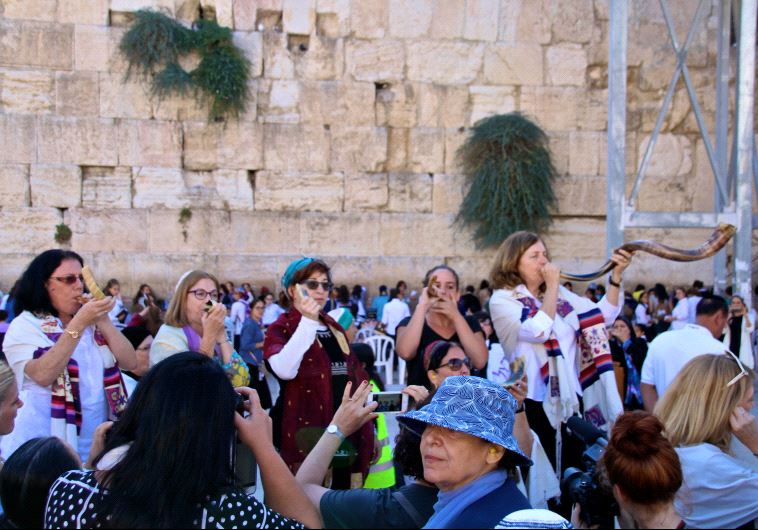Israeli High Court may intervene to carry out stalled Western Wall deal
Israeli Justices reprimand state for failure to implement plan for egalitarian prayer section at holy site.
 Women of the Wall celebrating Rosh Chodesh Elul.(photo credit: TOVAH LAZAROFF)Updated:
Women of the Wall celebrating Rosh Chodesh Elul.(photo credit: TOVAH LAZAROFF)Updated: